Unfinished symphony: Simon Yates and the Giro d'Italia
'I’ve got a lot of motivation to go back and finish the job off' says Briton
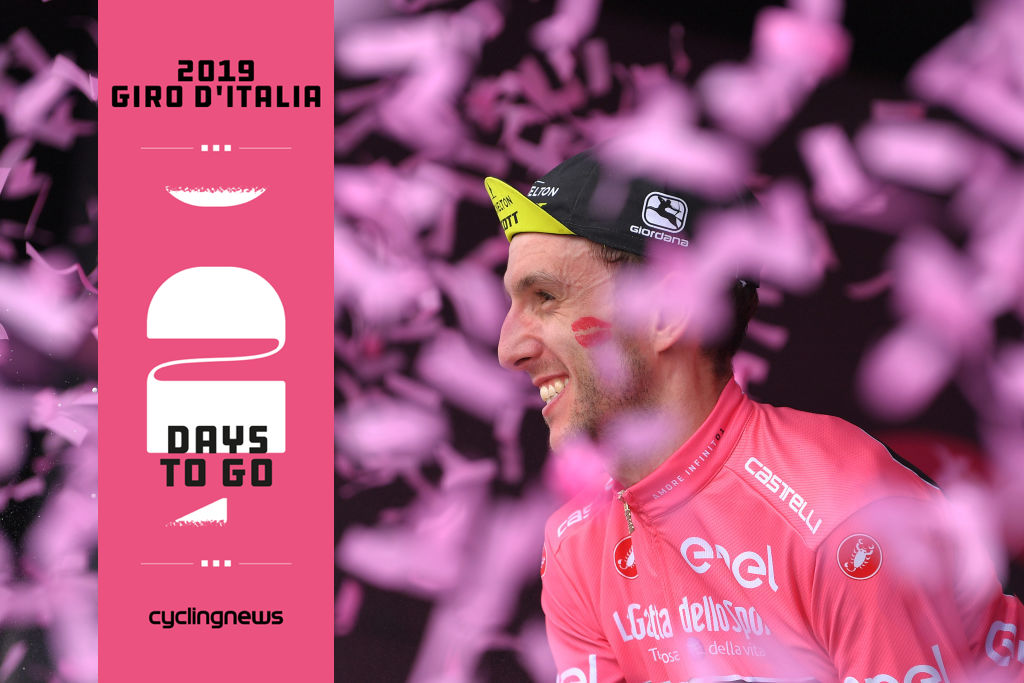
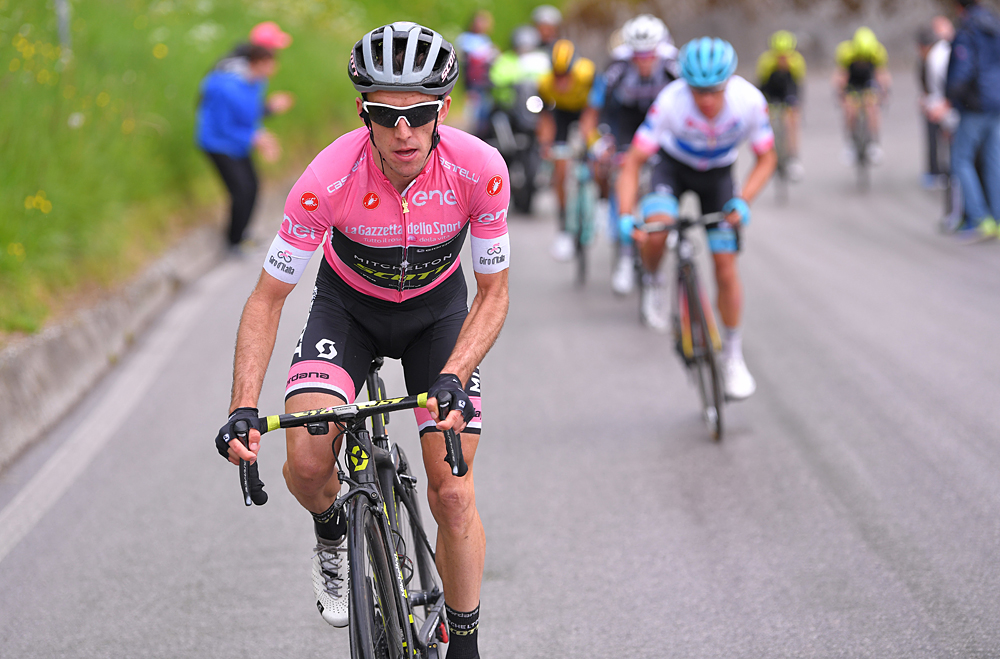
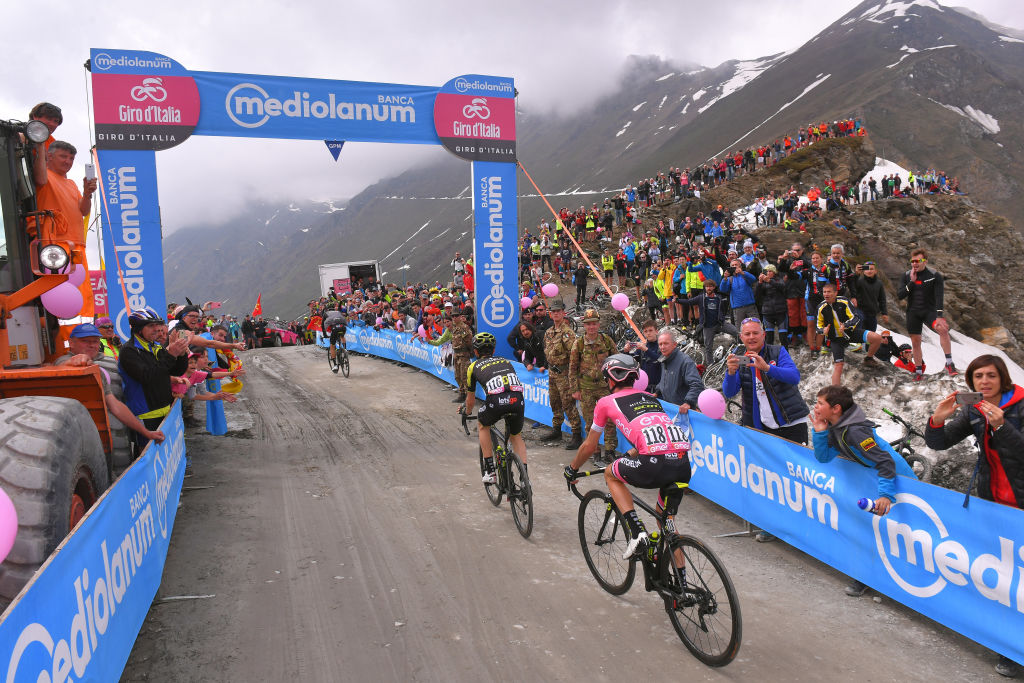
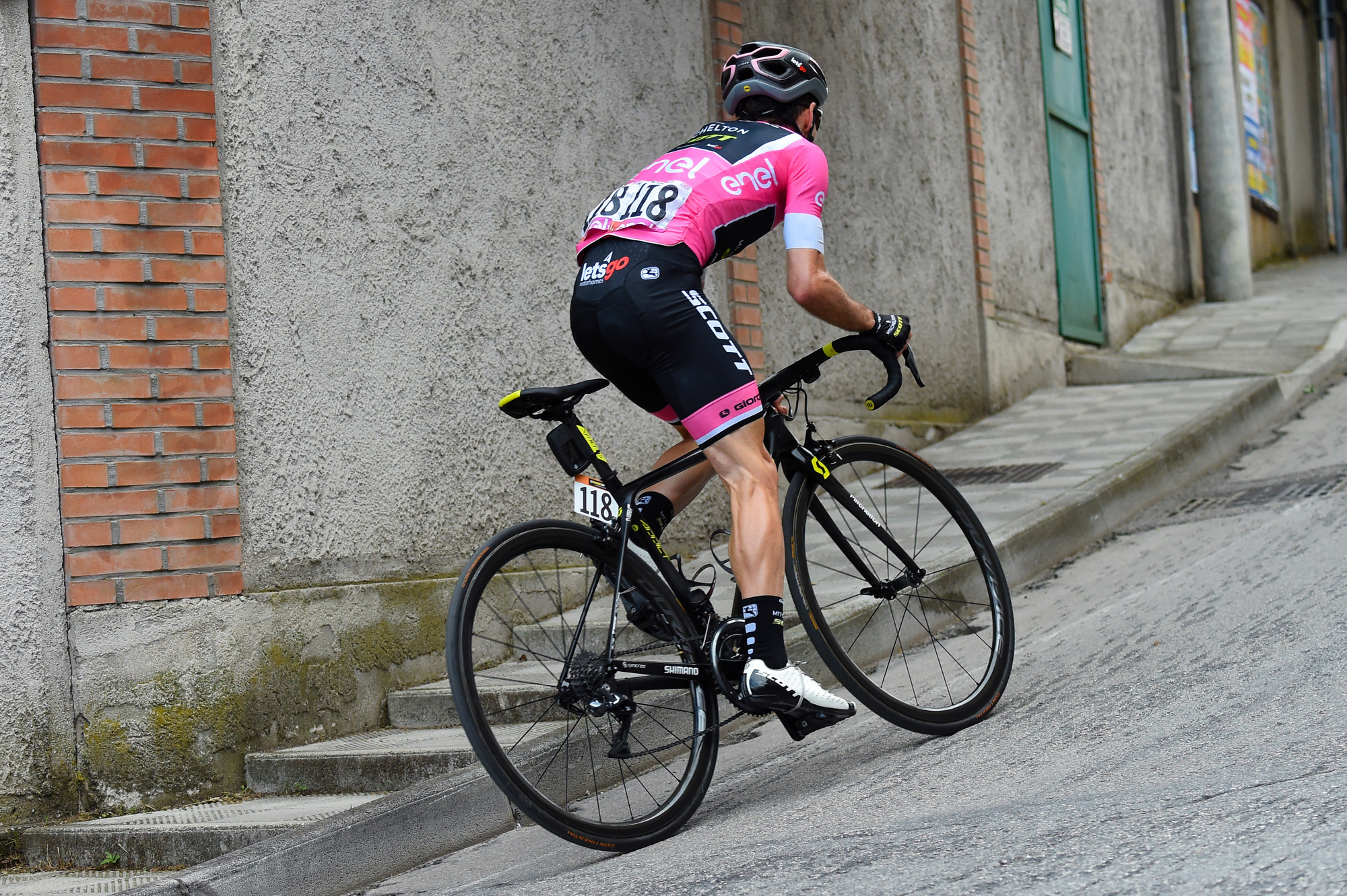
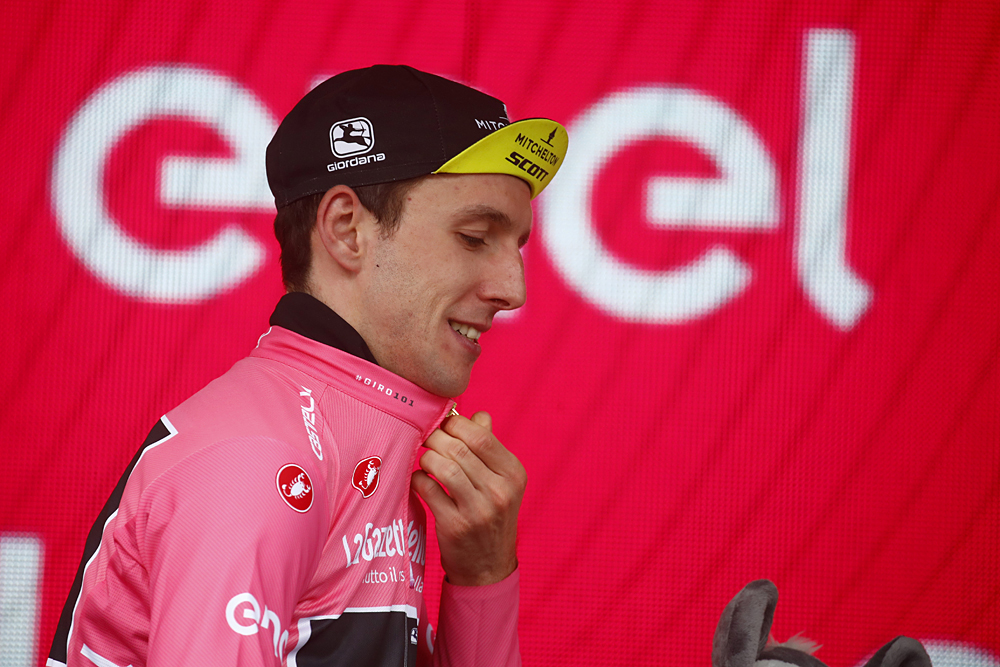
There were several defining moments in last year’s Giro d’Italia; from the sprint battles between Viviani and Bennett to the heroic cameos of Dennis, Pinot, Lopez, and Carapaz. The scenes witnessed on stage 19 overshadowed the lot, even the dramatic rise and fall of Simon Yates’ maglia rosa challenge, but, a year on, the Mitchelton-Scott leader is back and ready to finish what he started.
Winding back to last week, it's 11 days out from the 2019 Giro d’Italia and an hour before one of Yates' last training rides at home in Andorra, but his next port of call is a round of interviews from the European and Australian press. One wonders, as he picks up the phone, whether the shy and slightly reserved British climber will find this series of inquisitions as painful as today’s ride, but we find him in fine fettle as he opens up about his recent workload.
"It’s a few days away and I’m feeling good," he says at the start of his first interview of the day.
"Training has gone well and I’m looking forward to getting started. It’s been a more or less ideal preparation, to be honest, and I’ve not had any major hiccups. This last five or six weeks of training has gone really well. The signs are looking good."
Twelve months ago Yates arrived in Jerusalem as an outsider for the podium. The much-anticipated pay-per-view battle was meant to be between Chris Froome and the defending champion Tom Dumoulin but, from the moment Yates picked up seventh in the opening time trial, the cycling fraternity began to take notice.
By Mount Etna on stage 6, he had gifted a stage to a teammate and moved seamlessly into the pink jersey. More was to come, with wins at Gran Sasso, Osimo and Sappada, and while his rivals veered between the defensive and the inconsistent, Yates’ attacking verve looked impregnable as the race entered the final week.
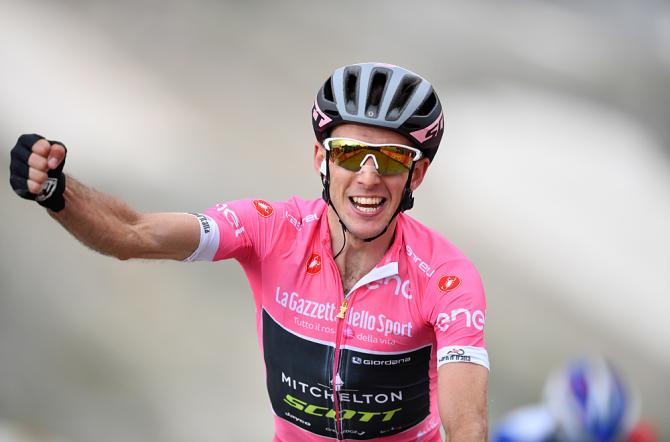
Then came stage 19. What happened on that day has been the topic of much debate, with Philippa York and perhaps George Bennett providing the most astute reviews, but the beginning of the end for Yates’ challenge could be traced back to either the Rovereto stage, where he went deep to hold off Dumoulin in the time trial, or to the entire opening fortnight with those stinging attacks in the mountains cumulatively sapping his powers.
Get The Leadout Newsletter
The latest race content, interviews, features, reviews and expert buying guides, direct to your inbox!
"We knew that we needed to gain time before the time trial," Yates says.
"That was the tactic and we stuck to that plan. It didn’t come off but that’s just one of those things. You learn from those mistakes."
His team director, Matt White, who helped devise the 2018 strategy and has spent almost a year since modifying and improving the new incarnation, agrees.
"You pay for all your efforts and everything that you do in a three-week race comes back to you. You’ve got to be really calculated but people love the way Simon raced the Giro. The fans of cycling loved how he raced but you’ve got to manage how you race.” White says. “Young guys get better at that over time and it might sound simple but you can get away racing like that over a week but, when you’re looking at backing up in the final week with six or seven-hour stages, what you’ve done in the first two weeks matters."
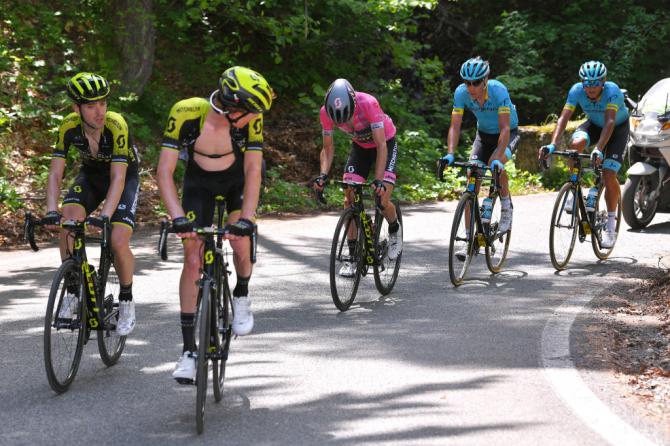
If the lessons from the 2018 Giro were harsh and unforgiving then Yates, White and the rest of the Mitchelton squad deserve credit for the way in which they rallied. The next day, straight after Yates’ capitulation, they won their fifth mountain stage of the race courtesy of the evergreen Mikel Nieve, while Yates would come back at the Vuelta a Espana and right the Giro wrongs.
His ride in Spain was an almost faultless rendition of how a climber can triumph in modern-day Grand tours. There was the natural, aggressive style he had displayed at the Giro but it was married with a tempered and almost Machiavellian approach to the leader’s jersey. Picking himself up after the collapse at Giro was no easy feat but after a block off time off Yates began to see that the Giro had offered him plenty of positives to draw upon for the future.
"We knew at the time that he was disappointed and that’s normal. But there were a lot of positives to take out of that race," White says.
"We didn’t expect to be in that situation and I don’t think we knew if he could be up there winning the Giro. To win three stages, that’s a lot of positives. Of course, he was gutted not to win but we kept in contact. Three or four weeks later we started to talk about the second half of the year, and at the time he wasn’t overly keen on the Vuelta but he came around and he wanted it. He wanted to go after it and by the end of Poland last year he was really hungry."
Had Yates not come away with the Vuelta win - in doing so becoming the first British rider outside of the Team Sky/Ineos juggernaut to win a Grand Tour - he would arrive in Bologna for this year’s Giro with questions over both his stamina and tactical acumen. The question wouldn’t have been if he would crack but when.
Yet, as it stands, the 26-year-old drops anchor in Italy as one of only three previous Grand Tour winners.
"The Vuelta gave me the confidence I needed," Yates says. "It showed me that I can go the distance. I don’t know how many guys will arrive at the Giro having won a Grand Tour before but I’m one of those guys. That gives me confidence but every race is different.
"But I just wanted to go back to have another crack. I obviously did well last year but just came up short. I just want to go back and have a go. I know that it’s going to be very difficult but we’ll see how it goes. I already had it my head that I wanted to go back before the parcours were announced. To me, it doesn’t make too much difference. Of course, if there’s 100km of time trials I’d think differently but the ones in the Giro are hard this year too. It was an easy decision to go back."
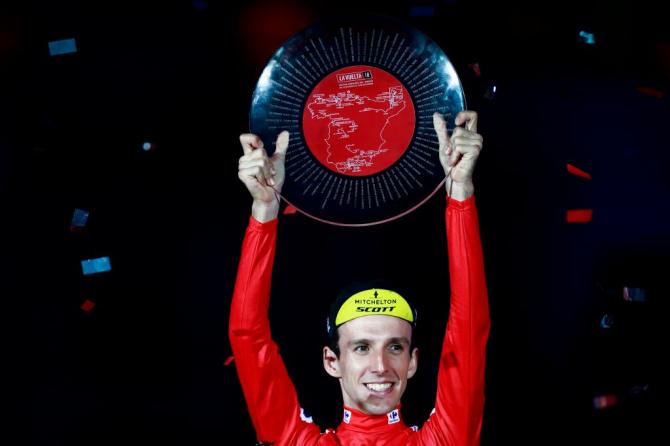
This year’s Giro route in some ways will help Yates temper his attacking nature and prevent him from falling into the same trap as last year. The opening week lacks mountain finishes and while plenty of stages in the first phase of the race will throw up a number of unpredictable factors, the race is back-ended with a mountainous parcours.
The threat of stronger time triallists in Dumoulin and the jaw-dropping form of Primoz Roglic could, however, mean that Yates reaches the first rest day with deficit to make up.
"I’ve not really thought about where I want to be after the first week," he says.
"I’ve been improving in the time trials over the years and of course I won one earlier in the year. I’m getting more confident in that discipline but I know that I’ll never be at the same level as those guys but I’m more confident than last year. I’ve spent more time on my TT bike, and I’ve made specific efforts on it. It’s going to be a hard race. Everyone knows that the final week is going to be really filthy. I’ve got a lot of motivation to go back and finish the job off. I’ve been working really hard now for a long time just for this one goal. To achieve that would be fantastic."
White, who drove the entire first week of the Giro during a solitary recon mission earlier in the year on Yates’ behalf, has given his pupil the full backing of the team. There are no sprinters, no distractions, and a squad arguably as robust as that of any of their rivals. The experience of 12 months ago, no matter how bitter it was at the time, may just be the difference between success and failure this time.
"He’s got the ability to win the Giro. He can win the Giro," White says.
"We’re in a better situation than we were 12 months ago and he’s in a better situation than he was 12 months ago. He’s got the knowledge that he can do it and went to the Giro last year without really racing much in Italy before then. He’s going back now knowing how to lead that race and how to win a Grand Tour. That’s all in the last 12 months and we know now what we didn’t know last year. In 2018 the plan was to go on the offensive because we knew that we were going to get a kicking in the time trials. The difference 12 months on is that we know where we are with his time trialing and there’s a degree of confidence that he has."
Yates has the confidence to run alongside clarity within his strategy. Now all he needs to do is finish the job.
Daniel Benson was the Editor in Chief at Cyclingnews.com between 2008 and 2022. Based in the UK, he joined the Cyclingnews team in 2008 as the site's first UK-based Managing Editor. In that time, he reported on over a dozen editions of the Tour de France, several World Championships, the Tour Down Under, Spring Classics, and the London 2012 Olympic Games. With the help of the excellent editorial team, he ran the coverage on Cyclingnews and has interviewed leading figures in the sport including UCI Presidents and Tour de France winners.
